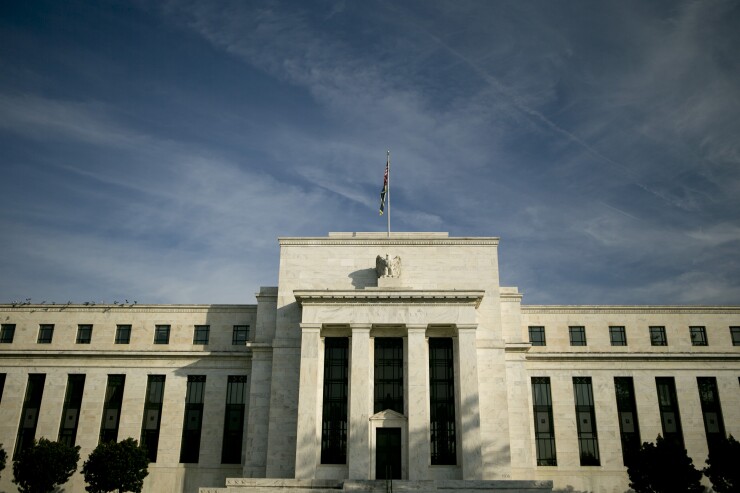
Industry groups are urging the Federal Reserve Board of Governors to take its time considering
In a joint letter to Fed Chair Jerome Powell, the American Bankers Association, Bank Policy Institute, Financial Services Forum, Institute of International Bankers and Securities Industry and Financial Markets Association asked the central bank to allow
"This rule will have a profound effect on the U.S. banking system and U.S. capital markets," the group's wrote. "This will have a direct impact on the ability and cost of businesses and individuals to obtain credit and capital and manage business risks. It merits careful consideration."
A Fed spokesperson confirmed that Powell received the letter but declined to respond to any of the claims made.
The request for the extended comment period comes just days after Fed Vice Chair for Supervision Michael Barr, the agency's top regulatory official, delivered a speech outlining his
During the remarks, which drew on conclusions from a nine-month "holistic review" of capital in the banking system, Barr called for

Barr said the changes will result in a 2% overall average increase in capital for the affected banks, adding that banks will have several years to build up the required level of equity but most could meet their obligations in as little as two years by retaining earnings. But policy experts have noted that the exact impact of the risk-based capital changes will vary significantly bank to bank.
Barr's comments were a precursor to a formal proposal that is expected to be unveiled by federal regulators in the coming weeks. Following the speech, each of the trade groups issued individual statements raising concerns about what the changes might mean for the banking sector and the broader economy.
In their joint letter, the organizations raised several issues with Barr's findings and conclusions. They argued that his review "considered only the benefits" of raising capital without factoring in potential drawbacks, such as restriction on credit availability. The groups also noted that the call for more capital contradicts previous assertions by regulators and other government officials that the banking system is well capitalized. It also runs counter, they say, to the stress test result released two weeks ago.
"The Vice Chair's speech reflected a very different view, and we expect that any proposed rule based on that view will document its justification," they wrote.
The groups also noted that introducing higher capital requirements in the name of finalizing the
"Rather the record clearly shows that the goal of the 2017 Basel agreement was to avoid increasing capital for large banks generally, and instead 'reduce regulatory capital variability, and level the playing field among internationally active banks,'" they wrote.





